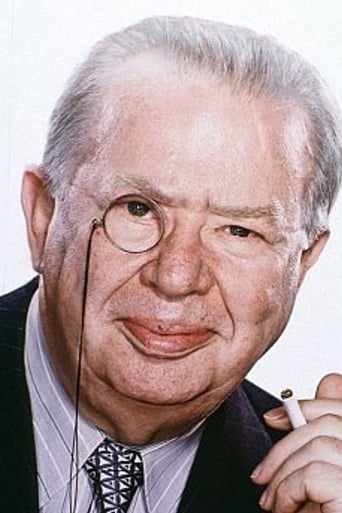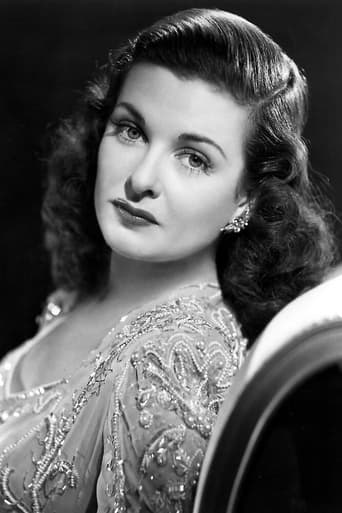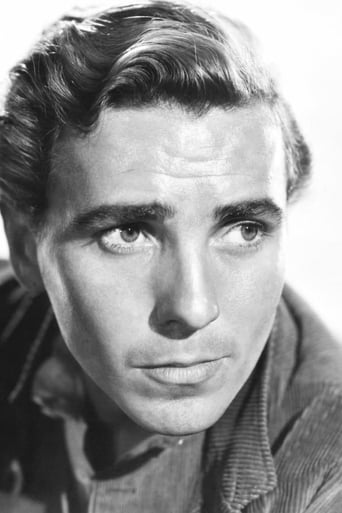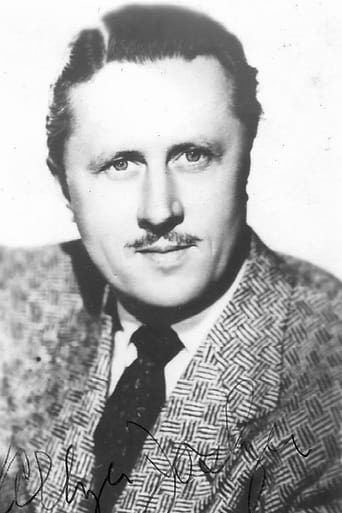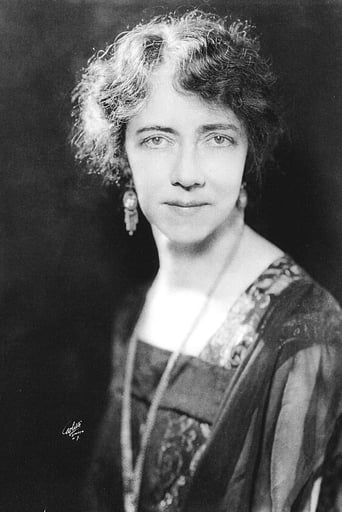Kattiera Nana
I think this is a new genre that they're all sort of working their way through it and haven't got all the kinks worked out yet but it's a genre that works for me.
Pacionsbo
Absolutely Fantastic
Cleveronix
A different way of telling a story
InformationRap
This is one of the few movies I've ever seen where the whole audience broke into spontaneous, loud applause a third of the way in.
SimonJack
An Army colonel retires to his childhood home in 1940 Georgia in this 20th Century Fox film. Released in January 1946, this is one of the first films made after World War II. The war is just beginning in this story that's based on a novel by Berry Fleming. The story is about the colonel, Will Seaborn Effingham, played by Charles Coburn. It's seen through the eyes of his second cousin once removed, Albert Marbury (played by William Eythe). The setting is the fictitious town of Fredericksville, Georgia. Cousin Willie (the colonel) asks Albert about Fredericksville, and Albert says it's "just like any of a hundred towns in Georgia." The colonel asks, "What's the population now?" Albert says, "Oh, about 30,000." The colonel asks, "How many voted in the last election?" Albert answers, "Oh, four or five thousand, I'd say." The colonel then says, "You mean 25,000 took no part in the action?" I don't know if that was supposed to be part of the comedy – implying that the entire population of the town was of voting age. If not, it was a gaffe on the part of the screenplay. The latter may be the case, because the script for this film is weak. It seems disjointed and not well tied together. The comedy is very light, and it's even amateurish in places. In three scenes where Albert notices Ella Sue's legs (Joan Bennett), the film has a weird and clumsy whistle sound over. The colonel takes on the local pols when he writes a column for one of the two town's newspapers. Albert happens to work for it as a reporter. Ella Sue is the society editor. This could have been a very good film with a tight script and some crisp, fresh dialog and humor. But, it's a nap time film, mostly. The only reason to watch it is for Charles Coburn and Thurston Hall – one of the best early Hollywood character actors of bombast. He's the bloated mayor of the town. They are the only two who have worthwhile roles and seem to give them some effort.Eythe's Albert is mostly droll throughout. His part may have been written that way in the book. Whether or not, it comes across that way. He just comes to life in a closing scene. Joan Bennett's Ella Sue was well below her talent and abilities, and the rest of the cast are forgettable. See the Quotes section under this IMDb Web page on the movie for the few funny lines. My favorite line in the film is is one by the colonel: "A community's history is its family tree."
Robert J. Maxwell
Coburn is Col. Effingham, recently retired from the U.S. Army and returned to the home town he left as a youth. It's 1940 and things have changed for the imperious old battle horse. He finds the "Home Folks Party", the mayor and his relatives, control everything in Fredericksville. They're corrupt and Coburn wangles a column in the local newspaper, stirring people to revolt against the changes introduced by the Home Folks Party. Why, they want to change the name of Confederate Memorial Square to Toolen Square, after some political bigwig.Let us make this as clear as the movie makes it. Charles Coburn is fighting to bring a halt to social change and bring back the venerable Confederate values of General Lee. They survived Sherman's march and they kicked out Reconstruction. Working women are scoffed at. The African-American "orderly" is given orders and happily marches around to a drum beat, when he's not being humiliated in swordplay with the colonel. (He's happy, though, except when cowering in fear.) It's kind of instructive though. The Home Folks party agrees to keep the name of Confederate Memorial Square and even beautify it with trees. At the same time they'll replace the 180 year old court house with a new one, meaning a work contract for the mayor's brother-in-law. We see the same dynamic at work in today's Congress. They attach "riders" to important legislation. The bill winds up looking like this: "We agree to continue funding the United States Armed Forces. PS: We will change the name of Fort Hancock to Fort Armistad." The battles continue between Coburn and his increasing number of supporters on the one hand, and the Home Folks party and its mayor on the other. The immortal Bess Flowers appears as a party guest. As the tale grows more serious, you'll find yourself rooting for Colonel Effingham and his "troops". The ending is a Capraesque caper.In the end, despite all the echoes of the Confederacy, I don't really see this as a message that the South was, and should continue to be, a paragon of old-fashioned virtue. The story could have taken place anywhere that had a bit of regional identity. Instead of the Confederate Memorial Square, it might have been the statue of the Minuteman at Concord. Instead of a community fight over tearing down the old courthouse, it might have been a disagreement over getting rid of Plymouth Rock and replacing it with a shopping mall owned by the mayor's brother-in-law.More important, it's an inoculation in 1940 for the coming war, just a taste of it, to get the adrenal medullas into shape. The narrator, a handsome young newspaper man, joins the Georgia National Guard and is introduced to a water-cooled Browning .30 caliber machine gun. There is a discussion about Fredericksville not being isolated from events in Europe, which are periodically alluded to. Colonel Effingham represents the practically, the adherence to tradition, and the élan of the military. He stirs things up. "Why did he have to come back here," moans the narrator, "when we were so peaceful and contented.""Colonel Effingham's Raid" was from a novel written by Georgian Barry Fleming and published in 1943. I imagine it was begun a year or two earlier, when the war had just begun or even maybe before Pearl Harbor, when isolationist sentiment was strong. Fleming was no retrograde pinhead. He'd been graduated from Harvard, spent some years in France, lived in New York, and his work was acclaimed by such respectable sources as the New York Times.
bkoganbing
Charles Coburn took a bit from his Academy Award winning performance in The More The Merrier and a bit from his imperious father in Vivacious Lady to create the unfazed Colonel Effingham in Colonel Effingham's Raid. It's one of the few films where this distinguished character actor is given the lead role and he makes the most of it.Through sheer stubbornness and will power Coburn is given a column on the local newspaper where his nephew William Eythe and Joan Bennett are also employed. It's supposed to be a column about the impending war news for this film set in 1940, but Coburn sees it as a great opportunity to rouse public opinion in that sleepy Georgia town against the ruling clique which has been in power so long they just treat the city money and assets like their own.The city fathers are a group taken right out of a Preston Sturges classic and I wouldn't be surprised if this film might have been something offered to him. Thurston Hall makes a genially corrupt mayor, this is one of his best efforts.Catch this film the next time TCM runs it, it's a real unknown gem.
abchulett
At the time I post this only 56 other users have rated this little film and only one other user has posted comments, and it's rated an average of 6.2. It's a shame that so few people have seen this little gem, and it's sad that our times are so out of step with its sentiments.This is the humorous and romantic story of a retired colonel who returns to the town he grew up in and finds that few of its citizens are involved in its care, noting that a very small percentage even bothers to vote and finding that they are afraid to get involved, not for any sinister reasons but simply because the mayor and his cronies have the town locked up pretty tight and can bluster their way out of anything. This town needs a focal point for change, and the Colonel is just the man for the job. His young second cousin and a society writer on the local paper join in, with satisfactory results and some poignant dialogue along the way. Nice film. 9/10. I'd give it a solid 10 if not for the unfortunate racial attitudes that come from a southern town still in love with its pre-Lincoln heritage, but even these are handled fairly delicately considering the movie's era.The film was apparently just restored in 2005, so probably it's not been seen often for many years. Watch for it on TCM; just caught it today on their Joan Bennett day, so it'll turn up again sometime. Well worth its brief run time.
